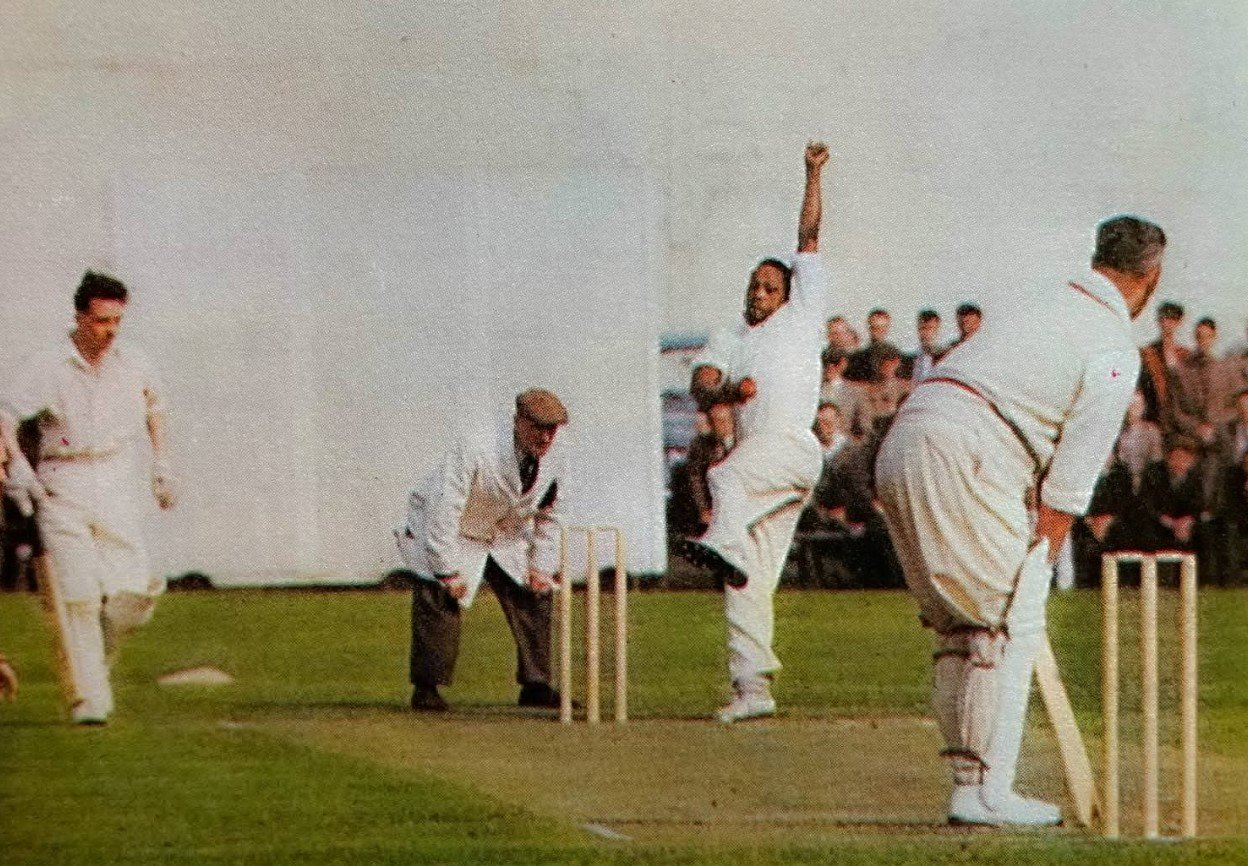Walking off the Pitch, Crompton, Lancashire, August 1965
In his day, West Indian Roy Gilchrist was probably the fastest bowler of his era. In the late 1950s, he played 13 Test matches, and it might have been more but for other things. His temperament, for one thing, was suspect. An example of this came in a Central Lancashire League game in the mid-1960s, when Gilchrist was working as a professional at Crompton.
Against Radcliffe, Gilchrist’s team batted first and made 106 in 160 minutes. It was not a big score, but it could be enough if Roy Gilchrist was in form. Analysts of later events pointed to only one controversial incident during the Crompton innings. Marsh, the number-eight Crompton bat, popped up a catch immediately in front of him. Wicket-keeper Derek Bickley, the Radcliffe captain, dived forward to catch the ball but Marsh moved across him, probably accidentally.
Derek Bickley couldn’t reach the ball, someone appealed and the umpire gave Marsh out. The Radcliffe opening bats were Derek Bickley and Bill McDonald. Gilchrist opened the bowling to skipper Bickley. Not very tall, Gilchrist ran quickly to the wicket and was especially hostile. His first ball to Bickley was a beamer.
The rest of the over was close to where a batsman might expect it to be. By the time of Gilchrist’s second over, the Radcliffe score had moved on to four. Up comes Roy Gilchrist again, bowling to Derek Bickley again. Another beamer. Here comes the second ball, and this one is a bumper. The atmosphere is tense now. Derek Bickley points to his chin for some reason; one umpire later implied that Bickley was provoking Roy Gilchrist, and the bowler, feeling as mad as he could ever be, goes back to his mark and runs in for the third ball of the over. This time, Gilchrist runs past the wicket until he is six yards down the track.
Then, rather than bowling the ball, he throws it at the other end. By this time, Bickley, sensing the danger, has retreated somewhere towards square-leg. The ball flies over his head. In protest, Bickley and McDonald walked off the pitch, and the game was abandoned. The crowd milled around the pavilion. Radcliffe supported their captain’s actions, but the League ruled that Crompton should be awarded the points. They suspended Roy Gilchrist and Derek Bickley until the end of the season, which meant three games.
It was perhaps surprising that the two men were treated with the same punishment, as Gilchrist already had a ‘record’. It was reprimanded by the League after two complaints about him. Gilchrist had been sent home from the West Indies tour of India in 1959 after persistently bowling beamers at an Indian batsman when riled. He had also been at the center of a walk-off incident in 1960 when playing for Middleton at Oldham, with home-team captain Bill Lawton calling off his team after one of his batsmen had been hit. Oldham were fined £5 and forfeited the points on that occasion.
